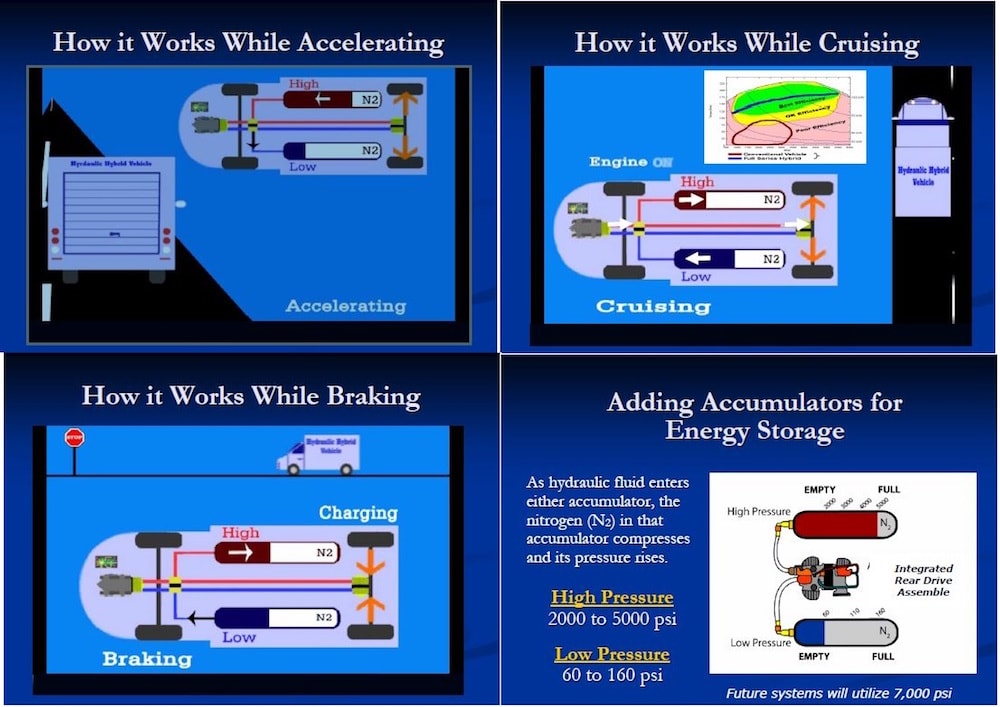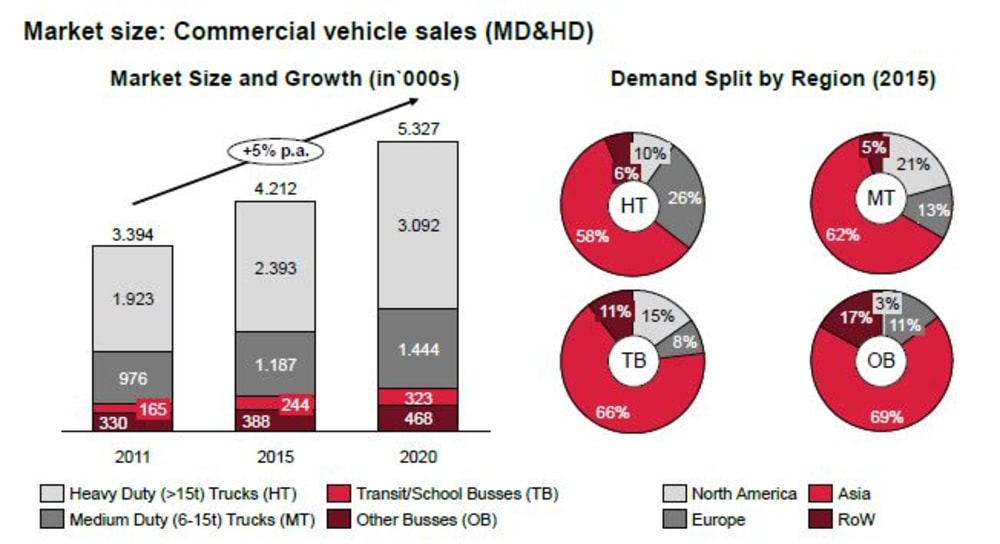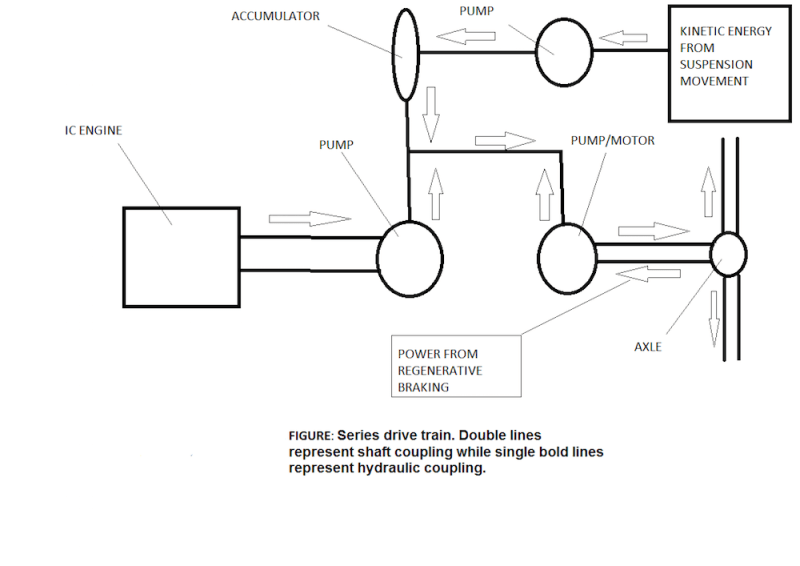Current Scenario of fossil fuel-
The life of fossil fuels left in the world is as follows- Oil- 32 years, Coal- 107 years, Gas- 37 years. These alarming statistics provoke us to ponder and develop some new technologies that will reduce the consumption of these fuels. Hydraulic Hybrid Vehicles are one of them.
Main Aim-
To reduce the use of crude oil and to use the energy which gets wasted in the form of heat using hydraulic hybrid drive-train.
The Novelty-
• Currently the Hydraulic Hybrid Vehicles use the energy wasted in braking.
• In this paper, we propose an idea of using the energy wasted in suspension with the energy recovered from regenerative breaking to increase the efficiency of the hydraulic hybrid vehicle.
• The energy recovered from suspension can also be used to charge a battery for additional purposes.
Potential Benefits-
• Since the hybrid is a cross between gasoline and electric, the fossil fuel consumption by it is significantly reduced.
• They are helpful in bringing down the level of greenhouse emissions.
.
Working-
Hydraulic hybrids use three main components to power a vehicle at slow speeds and to augment the gasoline engine. Fluid is stored in a low-pressure reservoir. A pump moves the fluid from the reservoir to a high-pressure accumulator. The accumulator holds not only the fluid brought over by the pump, but also pressurized nitrogen gas.
These three components work together, but to get things started, they need energy. That energy is gathered through regenerative braking. Kinetic energy from the brakes powers the pump. As the vehicle slows, the pump is activated, and moves fluid from the reservoir to the accumulator. As pressure in the accumulator builds, the accumulator sends its energy (in the form of nitrogen gas) directly to the driveshaft. As that happens, the vehicle accelerates, and the pump moves the fluid back to the reservoir, ready to charge the accumulator again.
Further, to increase the efficiency more and to use the energy lost in suspension, the energy lost in suspension is used to charge the accumulator with the help of a pump.
Market-
In public transport vehicles like school buses and city buses , there is no problem of space and weight, also the hydraulic hybrid uses the power lost in braking and deceleration , therefore it would be highly beneficial in the condition of urban transport where braking and deceleration occurs frequently. So the HHV can be used in public transportation in urban areas. Main applications are on vehicles that operate for long hours with frequent stops such as city & school buses, delivery vans, garbage trucks etc.
Production-
Two reservoirs made of carbon fiber to withstand high pressure, two pumps acting solely as pumps and one pump/motor. From EPA's initiatives and projects, it is seen that the cost of modification of vehicles in very less compared to the gains. The 1-3 years payback attracted a lot of industries.
Like this entry?
-
About the Entrant
- Name:Mayank Giri
- Type of entry:teamTeam members:MAYANK GIRI RENUKA SAHU
- Software used for this entry:MATLAB
- Patent status:patented








